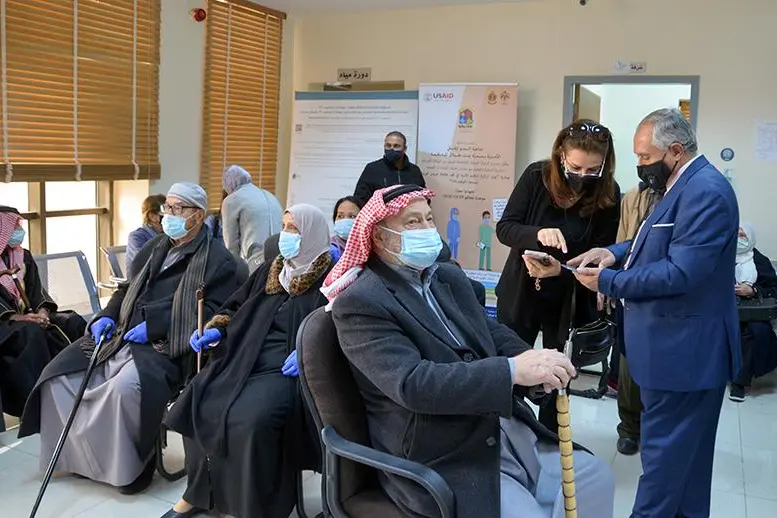PHOTO
Jordan’s king, crown prince, and many well-known medical and media celebrities were filmed receiving the vaccination in an effort to convince skeptics of its safety.
Hillaleh Oweis, 92, was the first to take the vaccine in the city of Jarash. Her daughter Eman told Arab News that her mother was initially skeptical of the vaccine but was eventually convinced of its safety and has shown no side effects.
Ziad Al-Kabashi, an Iraqi refugee in Irbid, was among the first refugees in the world to receive the COVID-19 vaccine. He was prioritized for the vaccine because he suffers from chronic diseases and is considered part of the high-risk category.
Meanwhile, government spokesperson Ali Al Ayed announced the lifting of the Friday curfew but said that the daily midnight-to-sunrise curfew will remain.
Minister of Education Tayseer Nueimi said that as of Feb. 7, students from kindergarten, the third grade and the 12th grade will gradually return to classes, while other grades will continue with remote learning, with a review every two weeks.
Nadine Nimri, head of a popular campaign for the return to schools, told Arab News that an online poll of 25,000 Jordanians by the pressure group showed that the knowledge gap had widened considerably during the past 11 months of online teaching.
Nimri said: “81 percent of the families said that their children’s education has been badly affected, with many unable to connect to the government-sponsored online teaching program.”
She added: “The system is a one-way process and does not engage with students.”
Nimri welcomed the decision to return some grades to school. “Even though it was late, the decision is a good one. Now schools need to make up for all the lost teaching days. They need to put a reasonable plan to make up what was lost before moving ahead.”
Thoqan Obeidat, a veteran educator, told Arab News that decisions to restart the second semester should be based on science, not politics or peer pressure. “We are all for the opening of schools, but this should be done only if the health situation allows.”
He added: “In the meantime, we should continue to improve online teaching until we are able to guarantee safe face-to-face education.”
Obeidat criticized the decision to rotate students from the early grades as families will have some children going back to school and others stuck at home.
Copyright: Arab News © 2021 All rights reserved. Provided by SyndiGate Media Inc. (Syndigate.info).





















